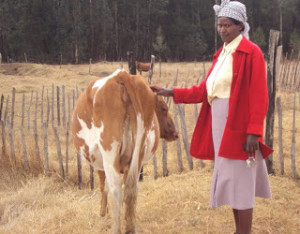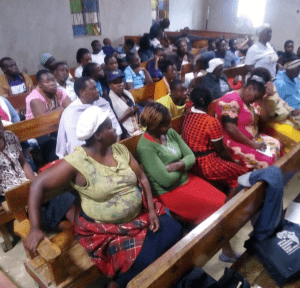Keziah: Now a Proud Kenyan Dairy Farmer Background Keziah Wangechi...
Read More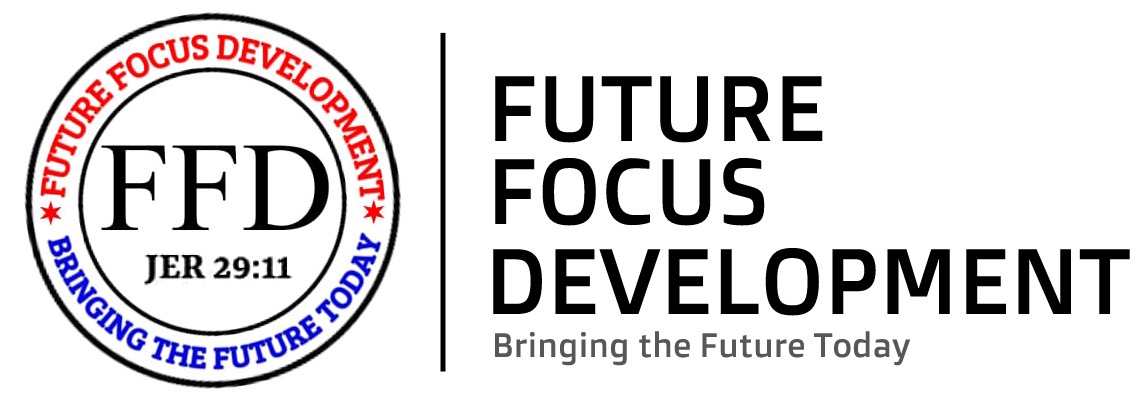
Future Focus Development
We help marginalized communities enhance their institutional, technical and financial capacity, and market linkages.
Background
“Listening to Mary Gichuki referring to the different botanical names of the fodder trees on her compound, one would mistake her for an agricultural Extension office…” This was a confession from Dr Sigh, a research officer and a lecturer from India–University of New Delhi. He made this statement during a recent visit by international delegates who visited the family ‘s “Bamato” farm in November 2011.The team of 38 delegates (from Africa, USA, Latin America Europe and India) were part of a team of about 400 participants of a conference on Technology transfer in Nairobi.
Mary’s farm was one of those that had qualified to be visited for she had made a breakthrough in one of the Key areas many small scale dairy farmers had failed: the farm is a success story of its own kind in terms of integrating fodder production and crop production systems.
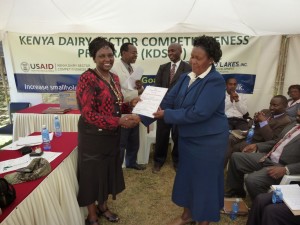
The Family and Location
Mary combines as a dairy farmer, a business lady and seed and tree seedling service provider. She is a mother of four boys. All of them now are professionals in employment. She is in her late forties. Her supportive husband has recently retired from Kenya Postal services to join her on her new business on their farm. The four acres farm is located in Gitiha (Lari), Kiambu County of central Kenya. It is 25 Km west of Githunguri some 50 Km North of Nairobi City.
Education and Business
Asked about her education background she had this to say.” I attended my early primary education in Bongo in South Kinangop of Nyandarua County. I joined Moi girls’ secondary school in Eldoret up to form four. As an early timer, I met my lover and married him. Then I trained as a tailor”.
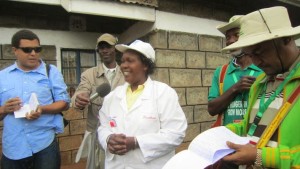
Farming and Dairy Service Provision.
In 2006 Mary was identified for a training organized by ICRAF at Nakuru. The training was on fodder seed and nursery management as well as business skills. Following the training the 28 participants drawn from national level resolved to form an organization that would help them expand this initiative. This is when Kenya Association of Tree Seeds and Nursery Organization (KATRESNO) was registered. Mary took this training very seriously that she is the most aggressive of the 5 active service providers. She is the only active woman.
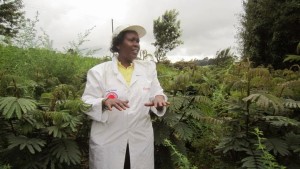
”Mary, what are you involved in?”
“My package includes training farmers, sale of technical brochures on fodder trees, sale of fodder seeds and seedlings and actual demonstration on my farm as well as field days. I have the following varieties: calliandra, sesbania sesban, tree Lucerne, and lupin, mulberry, sunflower, purple vetch and, trichandra. I also sell climbing bean seeds as a food security crop”.
“Mary, is this service viable and sustainable?”
In response she had this to tell the delegates.
”I have done the following recently: bought 4 high quality in-calf heifers, an electric chaff cutter ,a water pump, 100 chairs and a tent for quests during trainings which is also available for hire, a plot … and am able to service Kshs 300,000 loan comfortably.
I have also created employment opportunities to 3 women. My seed stock stands at Kshs 200,000 and clothes around 150,000”.
Mary says she is very grateful to Future Focus Development (FFD) for facilitation in the Nakuru training jointly with ICRAF in 2007, the linkages to dairy Cooperatives and Livestock farmers Field schools, Brookside ,Kenya Forestry Research Institute (KEFRI),Ikinyukia ( a KARI trained fodder seeds promoter in Githabai,South Kinangops) Royal Media services (“ Kikuyu Inooro FM”) ,Pwani FM, and the ministry of livestock Development for linkages to farmers training centers(Wambugu Agricultural Training Centre in Nyeri, Waruhiu in Muranga, Njambini inSouth Nyandarua, Oljoro-orok in Nyandrua North) and the Nairobi Agricultural show for the last six years now.
However, she says the only organization that has given her a certification of recognition is the Kenya dairy Sector Competitiveness Programme (KDSCP), Kinangop Milk Shed. She earned this as the most consistent Service provider in the milk shed.
Mary is most grateful to her husband Mr. Gichuki and her children for their support hence the acro-name of the farm-“BA-MA-TO” (Baba, Mama, and Watoto: Kiswahili meaning Father Mother and Children).
Challenges
Mary’s main challenges as a service provider in dairy includes:
- Means of transport to meet the ever increasing demand for training farmers.
- Meeting the high demands for high quality fodder seeds.
- Low level of adoption by farmers.
- Combining both my clothes business and services to farmers.
Future Plans
The future plan of the farm includes:
- To fully establish BAMATO into a commercial demonstration farm.
- Raise 5 high yielding quality dairy animals supplying 100 litres of milk daily
- Establish a fodder shop for fodder seeds.
- Expand the existing fodder tree nursery from 3,000 seedlings to 7,000 seedlings.
Contacts
A case study of a proud Women Domestic Worker in the slums
A case study of a proud Women Domestic Worker in...
Read More